It is fall, and deep in the ancient groves of the enchanted wood, a woman gathers earthy roots and plump, fragrant mushrooms. She places them in her basket beside wild ruby-red rose hips, juicy dark-purple elderberries, and silvery mugwort gifted by the hedges.
Her hooded woolen cloak brushes against the soft ferns that line the path over spongy moss and pine needles as she makes her way home. There, at the edge of the wood, her small stone cottage is surrounded by goldenrod and purple aster swaying in the breeze. A black cat in the doorframe mews, eagerly awaiting her return.As the teakettle heats over the hearth fire, she crafts a Samhain tea blend with the flora and fungi she’s foraged in the wood. This autumnal tea ritual honors the bounties of harvest time and celebrates the Triple Goddess, who now begins her seasonal transformation from Mother to Crone. The spirit ancestors whisper to her from beyond the veil, which is at its thinnest this time of year.
Join her and the collective of ancestors who came before you by putting together your own Samhain tea ritual celebrating and honoring the vibrancy of autumn, the abundant gifts of the harvest, and the deep love given to and received by one’s ancestors in spirit.
HISTORICAL CONTEXT
The history of Samhain, like the idea that the metaphorical veil between our world and that of the spirits thins at this time, harks back to Druid times—and possibly even further back, being rooted among many pagan peoples. Traditionally at Samhain, the final harvest, all farm tools were put away and the people settled in to rest for winter. We now celebrate the festival from October 31 to November 1.
Samhain has always been a culminating time for celebrations and rituals for giving thanks and connecting with one’s ancestors in the Otherworld. It makes sense to ponder death and make contact with loved ones in the spirit realm when nature reminds us of the impermanence of life. Leaves let go of their hold on the trees; plants lose their vibrancy and return to the earth where they will support the eventual rebirth of life in the spring.
SAMHAIN TEA
Ingredients in this seasonal tea are easy to come by, whether in the wild, your garden, or a trusted purveyor of dried herbs. I personally love the company Mountain Rose Herbs.
Ingredients (dried):
4 small rose hips
1 teaspoon dried elderberries
1 teaspoon dried mugwort
½ teaspoon mushroom powder (look for mushrooms like reishi, chaga, turkey tail, or cordyceps)
A pinch each of ginger root, clove, cardamom, nutmeg, orange peel
1 cinnamon stick
Tea Ritual:
• Set aside time and sacred space where you will not be interrupted.
• Place a large glass or wooden bowl on a surface adorned with things like a beautiful cloth, photos of loved ones (or pets) who have passed, natural outdoor finds of the season (flowers, leaves, berries, nuts, etc.), candles, and incense. This can serve as a personal Samhain altar.
• Combine tea ingredients (except the cinnamon stick) in the bowl with your hands, imbuing the tea blend with your energy and intentions to honor the season, the harvest, and your ancestors.
• To brew a single cup, use one heaping teaspoon of the blend. Steep it in boiling water for 15 minutes with your cinnamon stick.
• If you desire, add milk or cream and sweeten with honey.
• As you sip your tea, focus your intentions once again on your gratitude for the abundant gifts of fall and the harvest, and for the loved ones who have passed. You may wish to brew a second cup to place on your altar to serve as an offering for your beloved ancestors.
• This is a wonderful time to reflect and journal about seasonal themes of abundance, gratitude, love, rest, change, and transformation.







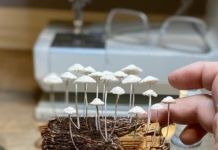
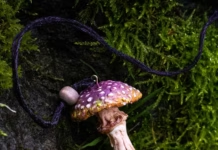
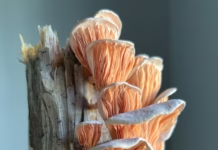
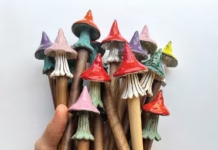
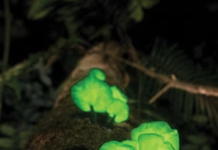
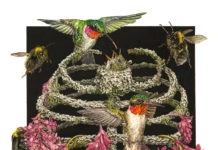
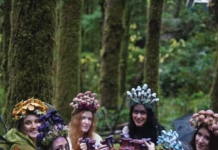
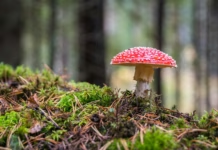
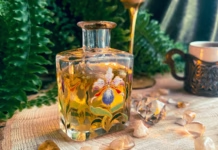
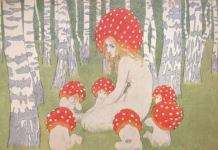
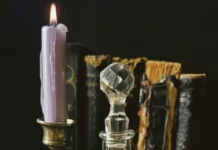






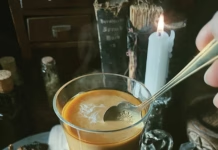
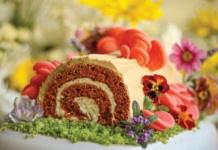
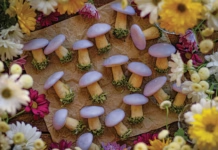
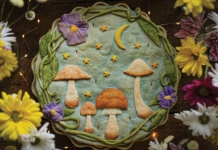
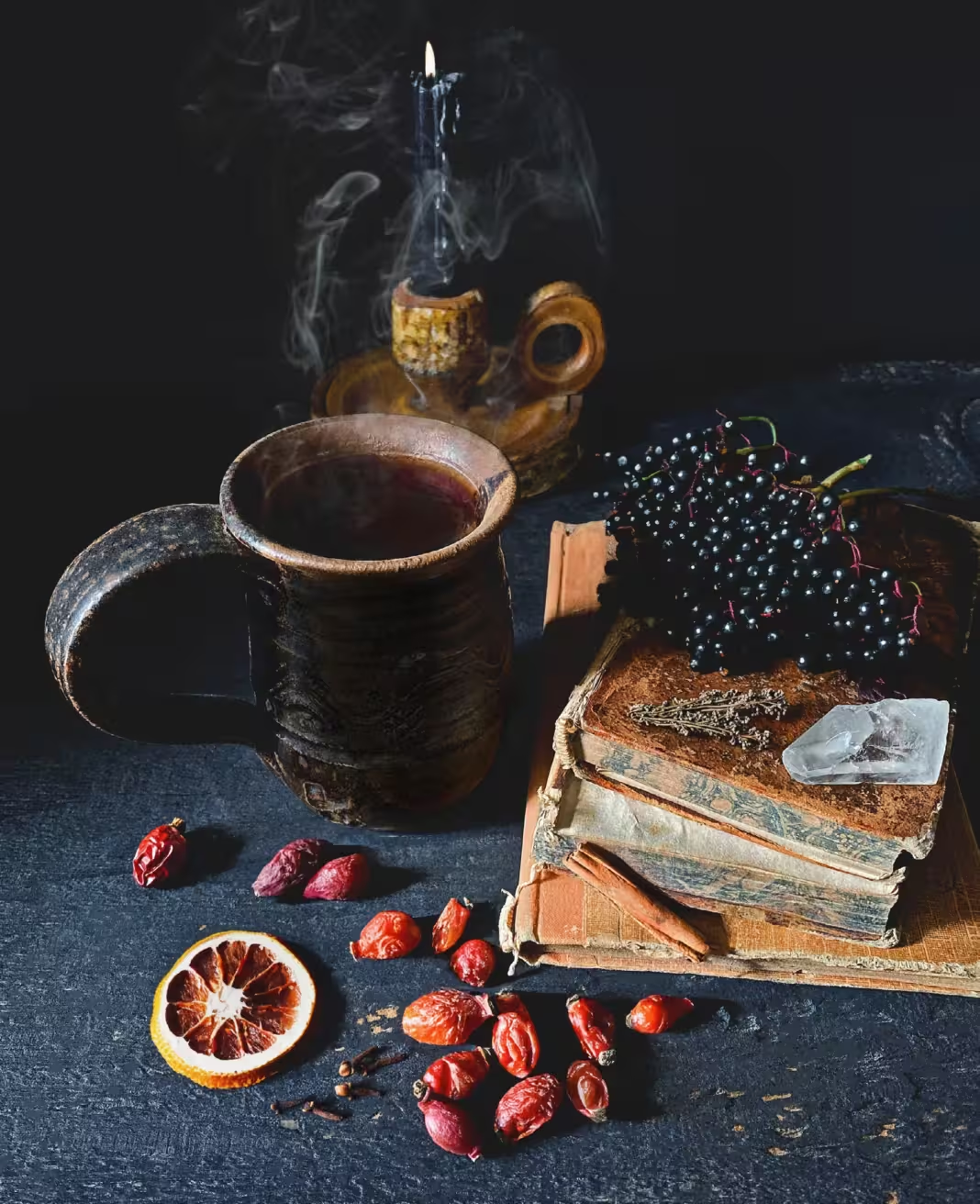
 Enchanted Living is a quarterly print magazine that celebrates all things enchanted.
Enchanted Living is a quarterly print magazine that celebrates all things enchanted. 



